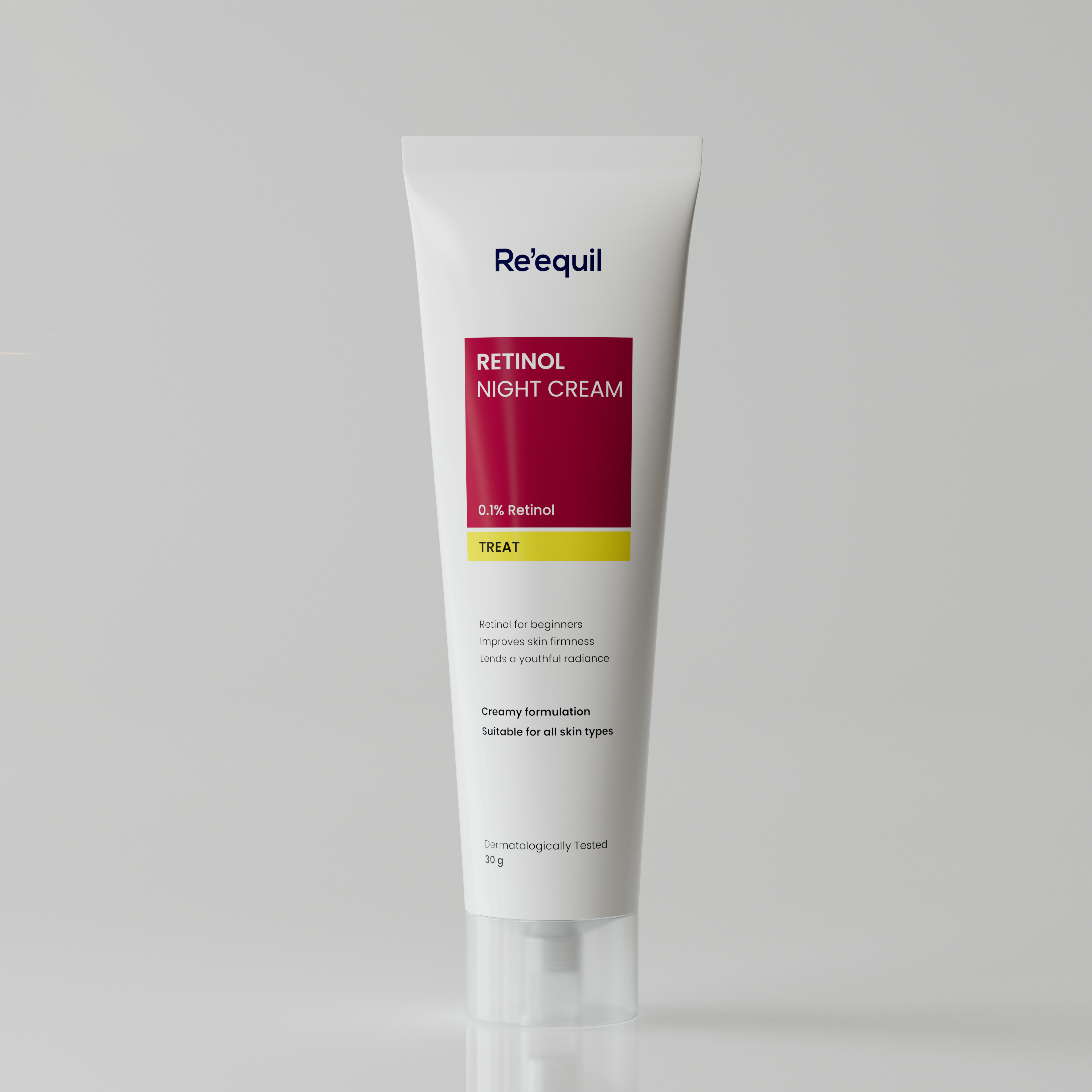Sunscreen isn’t just another step in your skincare routine—it’s the one thing standing between you and premature ageing regrets (aka fine lines, sunspots, and all the stuff you’re probably trying to avoid).
No matter the season, no matter where you live, sunscreen is non-negotiable.
Now, let’s talk about Retinol—one of the most popular skincare ingredients.
It’s hyped, it’s effective, but here’s the catch: Retinol won’t reach its full potential unless you pair it with sunscreen.
But why?
What actually happens if you don’t? Does Retinol lose its efficiency? Will your skin retaliate?
Let’s get into it. But first, the most important question.
What happens if you use Retinol without sunscreen?
“I will not be going out today, maybe I can skip the sunscreen and just use Retinol”
“It’s cloudy, I think just the Retinol is good enough”
These are the most common mistakes one makes while using Retinol.
Result?
Skin purging. Breakouts. Redness. Skin peeling and whatnot.
Retinol makes your skin more vulnerable to the sun because it speeds up how fast your skin renews itself.
Think of it like this: Retinol nudges your skin to shed old, dead cells faster and bring in fresh new ones.
That’s great for glow and texture, but in the process, the outermost layer—your built-in protective layer gets temporarily thinner.
With that layer slightly weakened, your skin is more exposed to sun damage.
And in the early days of using retinol, there’s often some redness and irritation, making it even less prepared to handle harsh sunlight.
Bottom line? Retinol is incredible, but sunscreen is its non-negotiable sidekick.
So ask yourself—aren’t these enough reasons to use sunscreen along with Retinol?
Even if you are at home or it’s cloudy outside—is it really worth the risk?
If you are still not convinced, here are some side effects of Retinol when not used with sunscreen.
Your skin will be at risk of sunburn
Without sunscreen, you're at a much higher risk of sunburn, which can damage the skin's outer layers and lead to inflammation and irritation.
Skin damage
Ironically, the sun accelerates the very things Retinol is trying to fix. UV exposure breaks down collagen, deepens wrinkles and leaves behind stubborn dark spots.
Retinol loses its efficacy
UV exposure not only cancels out Retinol’s benefits but also increases sensitivity, making your skin more prone to irritation and damage.
Furthermore, a scientific study shows that using Retinol and sunscreen together can help reduce visible signs of photoaging. They can also help maintain skin’s moisture and protect skin against UV damage.
If you’re serious about results, sunscreen isn’t optional—it’s essential.
Since Retinol makes skin sensitive to UV rays, should I avoid it in summer?
Yes, Retinol can be used throughout the year—regardless of the weather.
But again, in summer, you have to be cautious.
Sun is at its highest peak—and your skin because of Retinol is more at risk of sun damage than ever.
But if you apply a sufficient amount of sunscreen before leaving your house in the morning—Retinol is not likely to harm your skin in summer.
In fact, your skin will become smoother, healthy, and radiant.
A pro tip: Reapply sunscreen after every 6 hours. Sunscreen is not just a part of the morning skincare routine—it requires reapplication in the afternoon.
I use Retinol at night—do I still need sunscreen during the day?
It doesn’t matter when you apply retinol—morning, night (though night is best)—sunscreen isn’t optional.
Retinol penetrates into deeper layers of your skin—increasing collagen production and skin cell turnover rate.
So the Retinol you applied last night—is working even during the day.
Are there any benefits of using Retinol and sunscreen together?
While Retinol has plenty of benefits of its own—when paired with sunscreen—these benefits enhance—and the combination provides better, faster results.
1. Allows Retinol to work at its best
Retinol is well-known for its anti-ageing benefits. It’s the best skincare ingredient out there when it comes to reducing the appearance of fine lines and wrinkles.
How Retinol works is that it increases collagen synthesis and improves skin elasticity.
However, UV radiation degrades collagen by activating matrix metalloproteinases (MMPs), enzymes that break down collagen and elastin.
Using sunscreen with Retinol protects collagen from breaking down, allowing Retinol to do its job more effectively—leading to better results, faster.
2. Repairs and prevents sun damage
While Retinol’s job is to repair the damage caused by sun, sunscreen, on the other hand, ensures that no further damage is done to the skin.
This combination is perfect if you have sunspots or hyperpigmentation caused by UV rays.
While Retinol fades existing sunspots, sunscreen prevents them from getting worse or coming back.
3. Reduces the risk of irritation and sensitivity generally caused by Retinol
Retinol enhances skin sensitivity, increasing susceptibility to UV-induced redness and irritation.
Broad-spectrum sunscreen serves as a critical protective barrier, mitigating inflammation and improving the skin’s tolerance to Retinol.
A study published in Photodermatology, Photoimmunology & Photomedicine confirms that consistent SPF application significantly reduces irritation in Retinoid-treated skin, reinforcing the necessity of daily sun protection.
What SPF is necessary if I use Retinol?
There is a common misconception about sunscreens that if you use the highest level of SPF—which is 100—you can get the maximum sun protection.
A broad-spectrum, SPF 50 with PA++++ rating should do the job.
Make sure to apply about two-finger lengths of sunscreen to your entire face and neck.
Also, note that due to sweat, oil production and sun exposure—your sunscreen might break down after a few hours of application.
So reapply sunscreen every 6 hours or after heavy sweating.
































